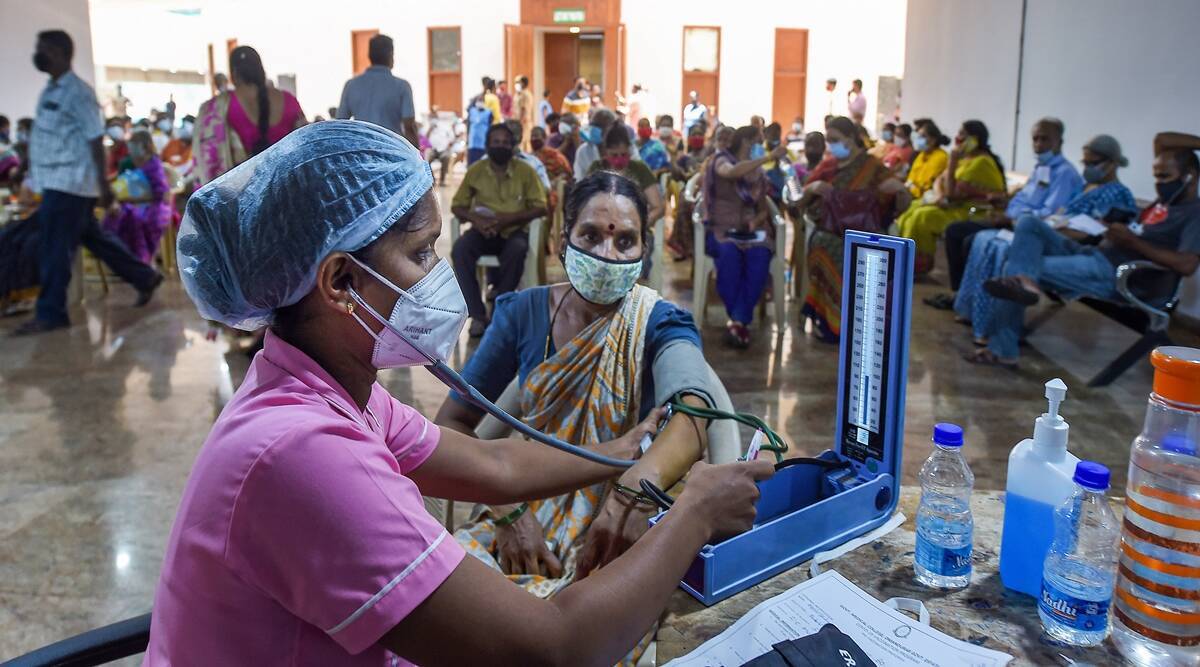Updated: November 8, 2021 4:10:00 am
 The process of finding one is not only tedious but is also expensive, with treatment costs ranging between Rs 15-45 lakh. (PTI)
The process of finding one is not only tedious but is also expensive, with treatment costs ranging between Rs 15-45 lakh. (PTI) Written by Vikram Mathews
Most countries with evolved drug regulatory frameworks, such as the US, have “orphan” drug laws in place to stimulate the development of treatments for rare diseases. In India, a similar policy was needed to put the necessary focus on rare diseases, including many life-threatening blood disorders, the treatments for which are often prohibitively expensive.
The burden of haematological diseases is huge in India. Every year, over 10,000 children are born with thalassemia and over 7,000 cases are diagnosed with aplastic anaemia. According to Globocan 2020 (Global Cancer Observatory), the per year incidence of blood cancer is over 1,00,000, and over 20,000 new cases of childhood blood cancer are diagnosed every year, of which nearly 15,000 are leukaemia. With the growing awareness about haematological diseases and increased access to advanced treatment, blood stem cell transplant plays an important role in the treatment of such disorders.
However, despite India bearing a heavy burden of haematological diseases, Indian stem cell donors only form about 0.04 per cent of the total listed unrelated donors globally. Blood stem cell donations today offer one of the very few curative options to treat and manage some forms of blood cancers and blood disorders like thalassemia, sickle cell disease and aplastic anaemia. Even though it is a common belief that siblings of a patient can function as donors, inheritance patterns dictate that each combination of siblings has only a 25 per cent chance of being a perfect match. Thus, most patients come to depend on an unrelated donor. The process of finding one is not only tedious but is also expensive, with treatment costs ranging between Rs 15-45 lakh.
India has introduced the National Policy for Rare Diseases, 2021 (NPRD), which aims to lower the cost of treatment of rare diseases. A disease is considered rare by the WHO when it affects one in 1,000 people, or fewer. The financial capacity to support the exorbitant cost of treatment of rare diseases is an important consideration in public health policy development, and the NPRD is an important step in that direction. By committing to provide Rs 20 lakh to cover the one-time treatment cost of diseases falling under Group 1 through the Rashtriya Arogya Nidhi, the NPRD attempts to cover almost 40 per cent of the population that is eligible under the Pradhan Mantri Jan Arogya Yojana. It will also make use of a crowdfunding mechanism to cover the cost of treatment.
For the rare disease policy to reach the next level, it must include stakeholders who can fill critical gaps. For instance, an organisation like DKMS BMST Foundation India, with its registry of more than 50,000 donors, can be instrumental in private-public partnerships proposed by the government. Since its establishment in 2015 in India, the organisation has worked to link patients with donors for blood stem cell transplants. To raise awareness, it conducts webinars, donor registration events, and various other media campaigns. Facilitated by DKMS-BMST, many children and adults with blood cancer and blood disorders have not only found matching donors but have also undergone successful stem cell transplants.
One of the most useful tools that DKMS has developed for doctors is the HAP-E Search, which helps connect haematologists and oncologists to potential donors across the globe. The fact that the software is free of cost to Indian stem cell transplant centres is an additional benefit. Already in use in AIIMS Delhi, CMC Vellore and PGIMER Chandigarh, the HAP-E search tool has provided a ray of light to doctors and patients.
In a country like India, where the incidence of blood disorders is high, NPRD and organisations aligned with the vision of the policy should come together to provide healthcare to patients who are often unable to access treatment due to a lack of funds or knowledge. The creation of a conducive ecosystem where multi-sectoral partnerships work towards reducing the lag between policy and practice can lead to more people accessing affordable, lifesaving treatment.
The writer is associate director and professor of haematology, department of haematology, Christian Medical College (CMC), Vellore.
- The Indian Express website has been rated GREEN for its credibility and trustworthiness by Newsguard, a global service that rates news sources for their journalistic standards.

